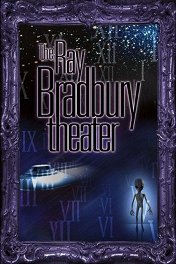

Similarly, behind them, in the halls, lights went onĪnd off automatically as they left them behind. Turned on when they came within ten feet of it.

Their approach was sensed by a hidden switch and the nursery light This house which clothed and fed and rocked them to sleep and playedĪnd sang and was good to them. They walked down the hall of their HappyLife Home, which had cost them thirty thousand dollars “It’s just that it is different now than it was.”

The stove busy humming to itself, making supper for four. “You know very well what he’d want.” His wife was standing in the middle of the kitchen watching “What would a psychologist want with a nursery?” “I just want you to look at it, is all, or call a psychologist in to look at it.” “George, I wish you’d look at the nursery. An odd refreshment for Africa, the cup of tea is a metaphor for civilized society and amenities, now swallowed up in the veldt of chaotic disorder, where children destroy their parents with a thought.\) Africa is on permanent display, including the slaughtered parents, and Wendy offers McClean tea. Tea and No Sympathyīradbury saves his finest metaphor for last, as McClean enters the nursery after the adult Hadleys have been devoured by the all-too-real veldt lions. The nursery mirrors their destructive, unfettered young ids. Barrie, have found their Neverland, and Peter - "a wise one for ten" - sets the controls to permanent Africa so they can never grow up. Peter and Wendy, named right out of James M. Steven Kagle called "The Veldt" a work "controlled by new standards of belief." Certainly, Bradbury wants it that way his changeling youths, metaphors for the universal desire to escape into technological fantasy, force us to re-imagine our ideas of what children should be. two years old you were shooting people with cap pistols." this bake-oven with murder in the heart." Bradbury links nursery toys to primal hatred and death, reflecting that Wendy and Peter, like most of humanity, are not too young for "death thoughts. Ultimately the veldt rules, as David enters the nursery and "stepped into Africa. Metaphor and Metamorphosisīradbury extends the nursery's metaphor into that of a godlike hunter, as it "caught the telepathic emanations" of the children and "created life to fill their every desire." The children become as obsessed with the nursery as cell phone addicts. which clothed and fed and rocked them to sleep." The metaphor of "house as mother" is intensified in the nursery, whose walls "begin to purr and recede" into an African veldt, complete with lions feeding at a distance upon "some animal." The beasts then move so close that "the yellow of them was in your eyes." The Hadley adults begin to realize that "the house is wife and mother now," and the quite unmotherly nursery is a source of savagery.

Bradbury's chilling tale exalts mechanization over humanity with the Hadley's "Happylife House.


 0 kommentar(er)
0 kommentar(er)
